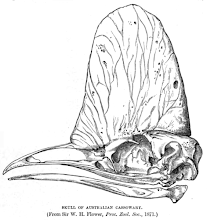so before i start talking about introduced species: school's out! i can go bird watching without feeling guilty for not doing homework! yahoo!
pardon the double negative.
i haven't actually gone bird watching yet this summer for extended periods of time; i tried to go to a wetlands, but i fell out of a tree into a stream and couldn't explore as much as i would have liked. wet socks are really uncomfortable! other than that, it's been sitting on the porch with binoculars.
[if anyone wants to go bird lookin' with me someday, just let me know? here are some of the cool guys i've seen:




...and more! it's really exciting seeing birds in action.]
but on to the topic at hand-- introduced species!
the term "introduced species" isn't used exclusively with birds. an introduced species is just a species that has [for whatever reason] been taken from its native habitat and placed in a non-native habitat. introduced species generally get a pretty bad rap: you've got your asian lady beetles, your zebra mussels, your kudzu...
these examples are known as invasive introduced species, and probably do deserve the poor connotation that comes with the "introduced species" label. asian lady beetles and kudzu were both introduced in north america to fix certain biotic problems, but what ended up happening is they did a little too well in their introduced environments and "took over," as it were.
the introduction of zebra mussels was an accident, whoops!

that shopping cart is covered in a colony of zebra mussels. they're apparently native to eastern europe, but someone [not naming names] [mostly because i don't know who] didn't czech their boat before coming into north america after boating abroad. i guess these mussels were attached, and as it turns out, they love it here! so now they're out-competing native species in lacustrine ecosystems.
like i say, whoops!
introduced bird species in north america are not hard to come by-- in fact, on a day to day basis, introduced species are what i see most often. one example of this is the house sparrow. if i had a quarter for every time i saw a house sparrow, i could probably get unlimited sandwiches for myself and five of my closest friends!
another example of an introduced avian species: the european starling

the european starling's history in the united states is actually kind of cool. well, kind of cool and kind of pretentious. in the late 1800s, a group called the American Acclimatization Society thought it a good idea to introduce every species of bird ever referenced in the published works of shakespeare. considering his proliferousness [that's probably a word?], its not surprising they ended up introducing over six hundred species to the united states. the starling was one of them. introduced in new york from 1890-1891, the european starling could be found almost anywhere in the contiguous united states by 1950. holy smokes!
here's a map of relative densities of where starlings are found presently:

remember when i talked about ecological niches? [http://bird-log.blogspot.com/2009/12/finches_29.html]
well, invasive introduced species [like starlings] fit into native species' niches really well. as it turns out, they fit into a lot of different species' niches because they're just so gall dern robust!
bird watchers especially hate this, because starlings out-compete better looking native birds like kestrels and flycatchers.

my dad got free return address stickers with vermillion flycatchers [pictured] on them from the audubon society. me not recieving those is a perfect example of ageism. don't they know that being an AARP member does not automatically make you a birder?!? i should have gotten those!
so jealous.
anyway!
one might think that introduced species are a totally bad thing, but i don't necessarily agree. globalization and the world becoming flatter has increased the spread of native species to non-native environments, and humans are notorious for messing around with what animals go where. with all the technology those damn neighbor kids have for transporting goods [like animals], the introduction and subsequent "take over" of certain robust species is preeeeetty much inevitable.
i don't like that native species are getting out-competed. i do, however, see that it's nature acting naturally under unnatural human-created conditions. take from that what you will.
i mean, it's really all about the competition:
[looks like the kestrel came out on top that time]
